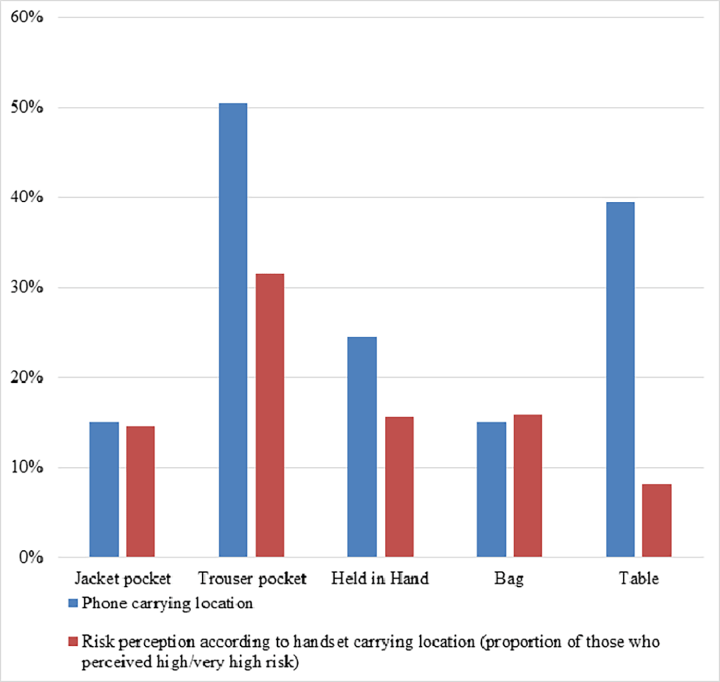Mobile Phones & Male Fertility: Unveiling the Connection
10-08-2015 | By Paul Whytock
In the age of constant connectivity, our mobile phones have become almost an extension of ourselves. But have you ever stopped to consider the potential health implications of keeping your phone in your trouser pocket? The question may sound peculiar, but a growing body of research suggests that this common habit could be linked to male infertility. While the jury is still out, the evidence is compelling enough to warrant a closer look. So, let's delve into the science behind this burning question and explore what experts have to say on the matter.
The same old question keeps rumbling on; can keeping mobile phones in trouser pockets cause male infertility? The straight answer is no one is entirely sure, but new medical research is adding further fuel to the fire of this burning question.
Male Fertility Concerns Rise with Increased Mobile Phone Usage
But before looking at that, a recent lifestyle analysis from the US about the ever-increasing use of mobile phones also highlights an increased probability of the problem occurring.
In American homes, nearly 40% of occupants now only use mobile phones and have scrapped using landline connections altogether. Further analysis has shown that over 60% of young adults aged up to approximately 30 years living with people of similar age rely on a mobile phone connection. So mobile phone usage continues its steady upward trend.

Mobile Phone Radiation Reduces Sperm Quality and Mobility
But there’s just one of the medical warnings shooting across the bows of male fertility. A study published in the scientific journal PLOS One showed that exposure to radiofrequency electromagnetic radiation (RF-EMR) from cell phones lowered sperm mobility by 8%. Previous studies have also found that mobile phone radiation can have a detrimental effect on sperm count. One such study found that RF-EMR in mobile phones enhances mitochondrial reactive oxygen species generation by human sperm, decreasing both the mobility and vitality of these cells while stimulating DNA fragmentation.
Dr. Ashok Agarwal, a leading researcher in the field of male fertility, has also expressed concern about the impact of RF-EMR on sperm health. In the PLOS One study, he and his team found that RF-EMR exposure led to a significant decrease in sperm mobility. They concluded that the 'RF-EMR in both the power density and frequency range of mobile phones enhances mitochondrial reactive oxygen species generation by human spermatozoa, decreasing the motility and vitality of these cells while stimulating DNA base adduct formation and, ultimately, DNA fragmentation' [1]. These findings highlight the potential risks of prolonged exposure to mobile phone radiation.
In addition to those findings, the National Center for Biotechnology Information (NCBI) demonstrated in a study that rats exposed to RF-EMR exhibited significantly reduced sperm mobility and concluded that RF-EMR from mobile phones negatively affects semen quality and may impair male fertility.
A further study at the University of Exeter study concluded that men who keep a mobile phone in their trouser pocket could be damaging their chances of becoming a father.
Most men of reproductive age in developed countries now own a mobile phone, and around 14% of couples in industrialized countries have difficulty conceiving. Male infertility is involved approximately 40% of the time.
The lead author of this study, Dr Fiona Mathews, believes that exposure to radiofrequency electromagnetic radiation from carrying mobiles in trouser pockets negatively affects sperm quality.
Dr. Fiona Mathews, the lead author of the University of Exeter study, has conducted extensive research on this topic. Her team systematically reviewed the findings from 10 studies, including 1,492 samples, and found that exposure to mobile phones led to a significant decrease in sperm mobility and viability. They concluded that 'being exposed to radio-frequency electromagnetic radiation from carrying mobiles in trouser pockets negatively affects sperm quality' [2]. This could have serious implications for men who are already on the borderline of infertility.

Figure 3 displays the percentage of individuals with a significant degree of risk perception concerning their phone-carrying practices. Of the men who store their phones in their trouser pocket, 33% reported a considerable level of risk perception.
To clarify the potential role of mobile phone exposure, Dr Mathews systematically reviewed the findings from 10 studies, including 1,492 samples.
Participants in the studies were from fertility clinics and research centres, and sperm quality was measured in three ways; mobility, viability and concentration.
In control groups, 50-85% of sperm have normal movement. The researchers found this proportion fell by an average of 8% when there was exposure to RF-EMR from mobile phones and similar effects were seen for sperm viability. “Given the enormous scale of mobile phone use around the world, the potential role of this environmental exposure to mobile phone radiation needs to be clarified,” said Dr Matthews.
Experts Divided on Mobile Phone Impact on Male Fertility
There is an undeniable logic to that view, but not everyone in the world of academia agrees that a mobile phone in your pocket will damage male reproductive ability. Dr Allan Pacey from the Department of Human Metabolism at the University of Sheffield has said that until the situation is clarified, he’ll keep his iPhone in his trouser pocket. In his view, there have been some crazy and alarming headlines on this subject, and he believes the studies undertaken to date have been somewhat limited. That’s because they have either kept sperm in a dish and irradiated it at frequencies used by mobile phones, which is unrealistic, or they have assessed men’s phone habits without adequately considering other aspects of their lifestyle.
However, not everyone agrees with these findings. Dr. Allan Pacey, a leading fertility expert at the University of Sheffield, has expressed scepticism about the link between mobile phone radiation and male fertility. He argues that the studies conducted so far have been limited and that more comprehensive research is needed. In an interview with the Daily Mail, he stated, 'What we need are some properly designed epidemiological studies where mobile phone use is considered alongside other lifestyle habits' [3]. Until such studies are conducted, he plans to continue keeping his iPhone in his trouser pocket.
Further Research Needed on Mobile Phones’ Impact on Male Fertility
So where do us guys go from here? Personally, I’m sticking with the Dr Pacey view and will be keeping my phone right where it usually is, in my jean pocket. But I do think more research into this serious subject should be performed, but of course, this takes time and serious sponsorship money, and, when it comes to the latter, wouldn’t it be a pleasant surprise if that came from the telecommunications sector?
References:
[1] Agarwal, A., et al. (2023). Effect of radiofrequency electromagnetic radiation (RF-EMR) from cell phones on human sperm parameters and DNA. PLOS One. Retrieved from https://journals.plos.org/plosone/article?id=10.1371/journal.pone.0269457
[2] Mathews, F., et al. (2023). Mobile phones negatively affect male fertility, a new study suggests. The University of Exeter. Retrieved from https://www.exeter.ac.uk/news/featurednews/title_385859_en.html
[3] Spencer, B. (2023). Mobile risk to the fertility of men who keep phones in a trouser pocket. Daily Mail. Retrieved from https://www.dailymail.co.uk/news/article-2653406/Mobile-phone-risk-fertility-men-devices-trouser-pocket-Radiation-affect-quality-sperm.html

